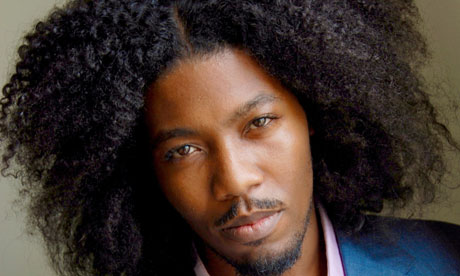
The winner of the Aldeburgh First Collection prize is announced this evening. The winner is awarded £3,000, a week's writing time on the Suffolk coast and an invitation to read at the 2011 Aldeburgh Poetry festival. It's a very well thought-out package, designed not only to recognise achievement but to give the winner time to work on their writing. What has the shortlist got to say about poetry at the end of the first decade of the 21st century?
Sam Willetts has received a lot of press for his collection already. Interspersed with poems about his Jewish family's experience in the second world war are lines about heroin addiction: "I'm back in the basement/ Heartsick, digging for a vein in February." Willetts is fond of that Larkin construction, "the sun-comprehending glass" and has "sun-fishing", "restless-camouflaged" and "hoof-dainty". This starts to become like a watermarked device growing ever fainter through the book. But this is a strong collection where the nightmare of history collides with Willetts's own bad dream.
Robert Dickinson is also a novelist and in poems like Biopic, Norfolk Conspiracy and The painter, Sebastian Kohler he creates atmospheric pieces that read like art-house movies. I think Biopic is a little masterpiece, a tale of a 20th-century everyman directing his life story: "Becton gasworks/ Stands in for somewhere east of Prague… Hackney will pass for Vienna." With a laconic shrug he consigns to the cutting room floor the epic: "We'll skip the war." But his old survivor is still avid for life: "Look closely at my hands/ However much they tremble they are young." Dark and playful and self-effacing, Dickinson is another strong poet.
How can poets write about England? Between Ted Hughes and Geoffrey Hill, the pastoral and the historical has been hived off. Tony Harrison takes the industrial hinterland, but what about those places that lie in between, prospects like "the back way through an England-flagged estate" or "laybys doggers use on summer nights" or, "Two darkened semis/ Blue eyes blazing// Malcolm and Sarah and/ Chris and Leslie// Staying up to watch/ The final of the swimming". Tony Williams focuses on liminal areas, corners, fences, ring roads, bus routes between towns. I think when he's concise he's brilliant. Sometimes though, like the landscapes he describes, he can sprawl. But I think Williams is firmly in the line of English poets back to Betjeman, Housman, Hardy and beyond. A terrific collection.
Katharine Towers is concise. Her collection consists of song-like poems, many of which take music as their theme. Violinmaker is typical: "He knows his tree by his fingers and ears/ Let fall, and he hears all its possible music: tuning's irksome scrape and creak/ Then a downrush of chords and glissando of leaves." Towers's deceptively simple-looking poems actually contain depths other poets often strain for. Her poem The Chinese Philosopher – a skit on Chuang-tzu's dream of being a butterfly only to wake and discover he is a man – is brilliant. It ends with paradoxical complexity several degrees beyond Chuang-tzu's question: Am I a man who just dreamed he was a butterfly, or a butterfly who is now dreaming that he is a man? Another strong collection.
Sheila Hillier is a medical sociologist, fellow and professor emeritus at Barts and the London – Queen Mary's School of Medicine and Dentistry, and visiting professor at the Chinese University in Hong Kong. Her work encompasses the near, "What's left of day/ Between five and seven/ Is yellow sunlight/ Reflected on the Lea canal", to the faraway, "A quarter of a century has passed since/ I've been home. I won't be going back/ Unless, as Incas say, the sun should change." Here a Spanish missionary in 1584 offers advice to his successor on how to take confession from Inca converts. A Quechua Confession Manual is another brilliant poem and Hillier also richly deserves her place on the shortlist.
Lastly, there's Christian Campbell. Campbell is from the Caribbean but his canvas is global. From Oxford – or as he dubs it, Oxfraud, to the Bahamas to Brixton, Campbell is a poet of diaspora, his language ranging from patois, "You 10, I six, jujube/ Now in season", to the philosophical: "I wondered/ If we could also lynch words." Campbell is a diverse poet, rooted, but reaching out to touch the world. Campbell is the least parochial of these poets, and his explorations of the complexities of identity herald a path for 21st-century poets to make their own.
The list is, to use Don Paterson's shorthand, very "mainstream". That is to say there are no experimental poets, no "postmoderns". The Forward First Collection prize shortlisted Steve Spence's A Curious Shipwreck, full of pirates, surrealism, non sequiturs and full-tilt stream-of-consciousness flow that would have Paterson wrinkling his nose. But there's little or nothing of the experimental on the Aldeburgh list.
One hundred years ago Ezra Pound starting meeting with TE Hulme and FS Flint. They went on to develop the poetics of imagism, and were part of the ferment that led to The Waste Land, and a tradition English poetry has been embarrassed about ever since.
Campbell's work does promise to break new ground. He, I think, will be one to watch.
The Shortlist:
Christian Campbell Running the Dusk (Peepal Tree Press)
Robert Dickinson Micrographia (Waterloo Press)
Sheila Hillier A Quechua Confession Manual (Cinnamon Press)
Katharine Towers The Floating Man (Picador Poetry)
Sam Willetts New Light for the Old Dark (Cape Poetry)
Tony Williams The Corner of Arundel Lane and Charles Street (Salt Publishing)

